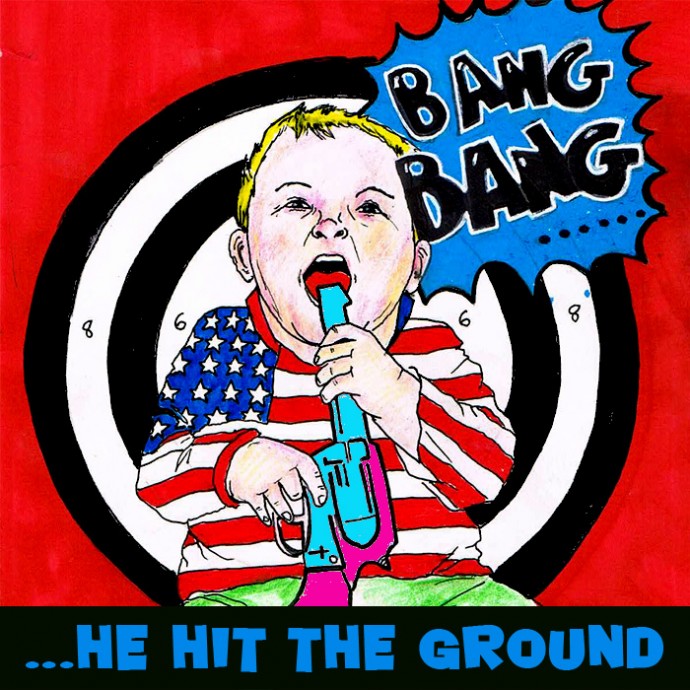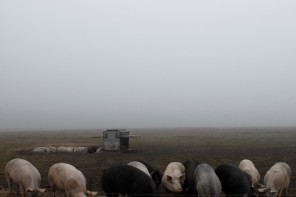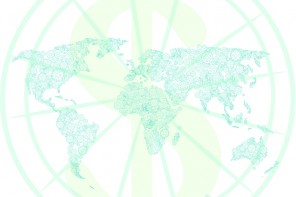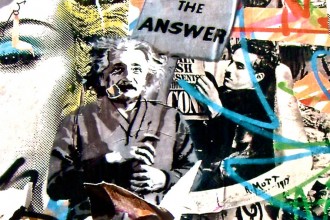Guns. Apparently there is never too many of them. In every country, every social class, their presence is justified through either power or self-defense. Garen Olmstead made his own relationship towards firearms. For him, the possession of a gun is not for power thrills, nor to defend himself, in a more obscure way, it helped him, he tells us how.
The American obsession with guns nests itself in a thirst for power. Many Americans justify the ‘need’ to own a gun by using the age-old cliché of self-defense. It’s common knowledge many victims of home invasions end up having their own weapons used on them. They don’t know how to use the weapon or they simply can’t when the moment to defend one’s self arises. Power is the real motivator. The right to bare arms (for self-defense) is an obsolete, simplified rhetoric the veils the true reasons for owning a gun. I don’t own a gun for self-defense or killing — I own a gun because shooting it makes me feel powerful, and that feeling is abstract.
The profit driven, capitalist system that perpetuates the over-production of this destructive apparatus would take a revolution beyond my imagination to reverse or stop. It took three days, money, and a simple background check for me to acquire my pistol. It’s even easier if you go the illicit route. Then it just takes money. We’ve all seen the graphic, statistical images on Facebook and what have you indicating which countries produce the most firearms, so I don’t see the need to talk much more about where they come from, nor do I want these words to illustrate all the interconnected relations that generate a system within which the production of firearms is basically unstoppable. I will talk about my relationship with guns.
It’s a simple place, the shooting range. A little bit of shelter, targets (perhaps, not even), and a large mound of dirt some distance off to catch the small projectiles is all you need to make one. Many people have private ranges—controlled environments where you can ‘get your gun off.’ Public ranges can be quite dicey, as any idiot with no regard for rules or regulations can go there, basically uninhibited. Sometimes a sheriff is there, but usually it’s a mixture of serious gun enthusiasts, redneck idiots, hunters target practicing, and amateurs. When I shoot—sure, I’m trying to hit the target in the middle area, and it’s satisfying to get a nice cluster at a fair distance—but it’s a sublime experience that I’m after. Once the trigger is pulled, events are set into motion that cannot be reversed. Mechanisms within the machine are propelled into action. There is no more control, and this is what is sublime for me: the lack of control. If the caliber is large enough, the percussive force of the explosion within the gun is enough to be felt on the open eyes, and within the nasal cavity. It may have been somewhat simplistic for me to say guns make me feel powerful. That’s part of it, but power is associated with control. The feeling is abstract.
Before my little brother lost his life to a gunshot wound, I had repressed any desire to shoot a gun. The three boys of my mother and father—my two younger brothers, and me, the oldest—suffered from anger issues, depression, and other common psychological maladies that many men have. I think the youngest of us was always the most furious. One night he decided to go to the wrong house in defense of his mother’s honor. Someone had been making crass remarks about her via text messages. An argument ensued, and for whatever reason, the father of my brother’s adversary decided in his drunkenness that the situation necessitated deadly force. The man let four shots clap their explosive noise into the night, and one hit my nineteen-year-old baby brother as he drove away. The bullet entered his body through his shoulder, passing through his lungs and heart, lodging itself in the other side of his ribcage. On scene, it took the paramedics some time to find the wound, because he bled out internally. His official death was announced at the hospital, and that was it—the end of his life.
My reaction to the news of how he died was nothingness. He didn’t die slowly from cancer, or some other ailment. He was there, and he was gone. I had no particular feelings towards the news. I couldn’t weep, even when I say his body. My younger brother was quite disturbed by my reaction. He couldn’t understand why I didn’t cry, why I wasn’t angry. I had nothing to give. I felt nothing. I started to think there was something wrong with me as well. The reality of grief as intense as that felt by my family and me isn’t something definable. When that kind of grief hits, the reaction isn’t predictable. Ironically, I felt relief when I finally wept at his funeral. Finally I felt something.
My artistic practice became somewhat emblematic of my reaction towards my little brother’s passing. I don’t have a religion. I don’t believe in God. We’re here, and then we’re gone. There isn’t anything after that. My beliefs have a subtle affinity towards quantum physics, really. It’s the idea that there is nothing in the universe—a void—but positively charged. The works took on the function of lower things, rather than defying gravity. On a very basic level most art in some way defies gravity, much like the way things grow. Beauty is comforting; I make work that disturbs. My work embraces gravity, sinking into a horizontal plane. Violence, insanity, and brokenness have become operations in the work instead of some vertical transcendence.
I read once in a book called Demonic Males that somewhere close to 95% of the world’s violence is perpetuated by men. That makes me feel wretched. But is it ok to meditate on, and even exercise those violent tendencies without somehow programming one’s self with the desire to just inflict more pain and suffering? A Buddhist would say no. My father would say no. In me, there is a monster—a horrible monster, but that doesn’t mean I want to kill and plunder like some warlord. I’m a mixture of conflicting desires and tendencies, and those who know me, know me as a sweetheart. Shooting guns doesn’t make me want to kill people, or any other earth-bound creature for that matter. I suppose if a different apparatus existed that allowed me to enter this sublime realm of horror, but contradictorily enjoyable, I would use it.
With these words, I don’t want to tell anyone what’s right and wrong. For me the guilt of killing a creature would be undesirable; I don’t have any affinity towards hunting. I have good friends who hunt. I think I would criticize anyone who killed for a trophy—a lion’s head. How about a photo instead? Guns are killing machines. They erase people. The act of shooting them can also, for a fraction of a second, bring one close to that inescapable horizon. It is both disturbing and exciting. My last words in this text can take on the form of love and hate, destruction and creation—they are perhaps the kernel of my attitude towards existence, matter, and the universe. We’re just bodies in the dark, waiting to collide.







